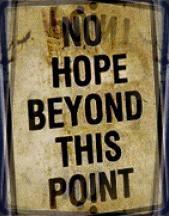Last week I published a decidedly mixed review of Joseph Bottum’s new book at the Public Discourse, and Bottum has now responded. He says I’m a McCarthyite and an unwitting conduit of anti-Catholic bigotry because I blamed him for failing to apply the Christian virtue of hope to contemporary American culture.
The editors of the Public Discourse have offered to let me write a full-length reply to Bottum, but the effort would be superfluous. As I wrote in my original review, Bottum himself has already provided, in his wonderful chapter on the life of John Paul II, a response to his failure to apply hope to the culture better than anything I could have written. His account of John Paul’s life demonstrates why Christian hope cannot be hyper-spiritualized – separated from our participation in our culture, including its political life as well as all the rest of culture – in the way that Bottum seems to desire. The origin of our hope is in the eternal life that only Christians possess, but if that hope is true, it must have implications for the life of culture. Christopher Brooks, a pastor in Detroit – where they know a thing or two about daunting cultural challenges – has said that if you don’t think your culture can change, your real position is “Jesus can transform people, but not in this ZIP code.” Nuts to that.
Bottum wants to have his cake and eat it, too. In this response, he writes as though his book had only said there was no hope for American politics. But the book was quite clear from beginning to end that Bottum saw no path forward for American culture as a whole, not just for the political section of American culture. If he is now recanting that view, wonderful – but let him say so clearly.
Most amazingly, Bottum tries to transform me into an advocate of the culture war. That is really funny, given that I’ve spent years resisting the culture war mentality. I’ve gotten into a lot of trouble with some of my friends for arguing that Christians need to greatly increase their investment in non-political modes of cultural participation. But I do insist that human beings are created to be political creatures and Christian hope therefore has application for politics – and I’ve gotten in trouble with some of my other friends for saying that!
As C.S. Lewis said, if the Lilliputians think me a giant and the Brobdingnagians think me a dwarf, perhaps my stature is not after all so remarkable.
